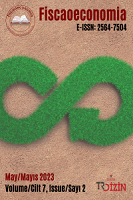Mali Disiplin: Eleştirel Bir Yaklaşım ve Post-Keynesyen Alternatif
Fiscal Discipline: A Critical Approach and The Post-Keynesian Alternative
Author(s): Kerem KİPERSubject(s): Economic policy, Political economy, Financial Markets, Fiscal Politics / Budgeting, Socio-Economic Research
Published by: Ahmet Arif Eren
Keywords: Fiscal Policy; Budget Deficit; Functional Finance; Modern Monetary Theory; Full Employment;
Summary/Abstract: This study examines the fiscal discipline issue, one of neoliberalism's core principles that says that the public budget should always be balanced. The orthodox approach, within the framework of the New Macroeconomic Consensus, takes a passive stance towards fiscal policies and focuses only on price stability. However, it resorts to budget deficits during crisis periods, assuming a stabilizing function. In the wake of crises such as the 2008 global financial crisis and the Covid-19 pandemic, economies have relied on budget deficits for recovery. Once the recovery was achieved, fiscal discipline was restored, and the burden of the crisis was shifted to wage earners and low-income segments through austerity policies, meaning orthodox fiscal policies do not directly target employment and fair income distribution. On the other hand, post-Keynesians offer alternative approaches, arguing that full employment and fair income distribution can be achieved through fiscal policies. This study discusses alternative policy proposals against fiscal orthodoxy from the post-Keynesian perspective, considering existing and potential constraints.
Journal: Fiscaoeconomia
- Issue Year: 7/2023
- Issue No: 2
- Page Range: 1787-1812
- Page Count: 26
- Language: Turkish

